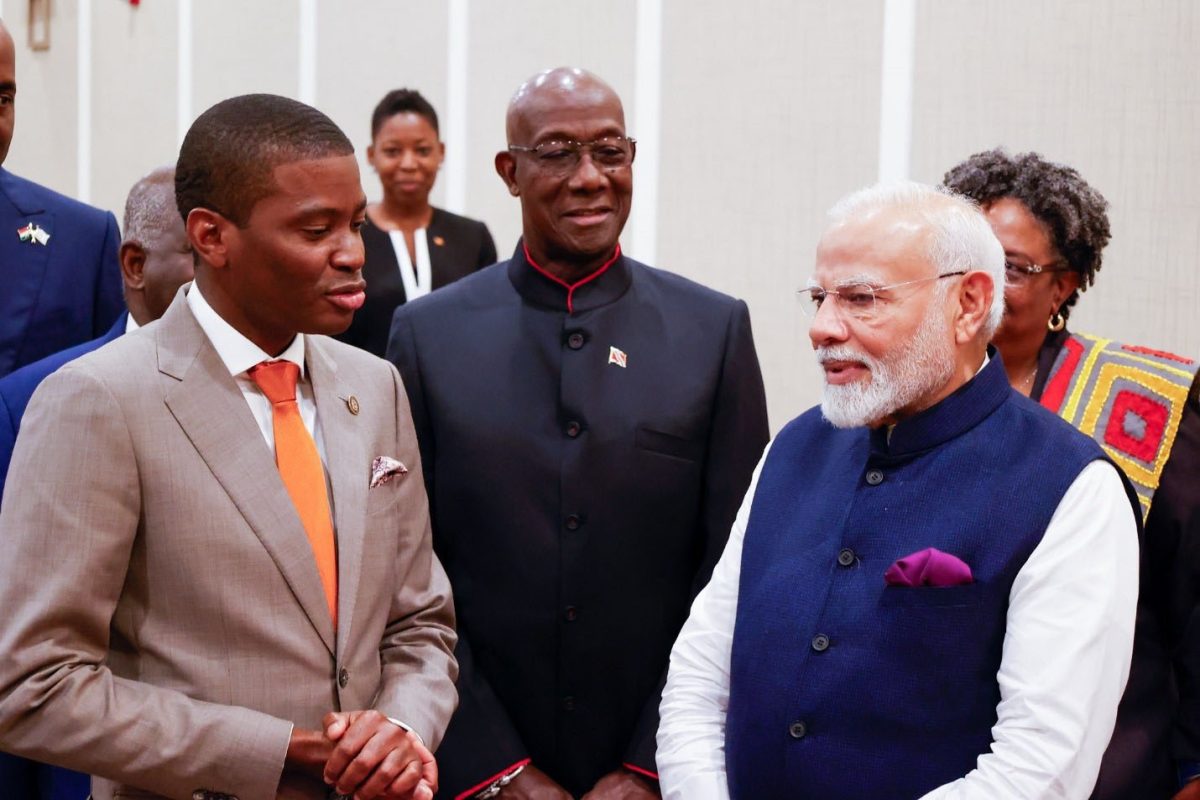…following summit
CARICOM and India on Wednesday agreed to ramp up collaboration on a range of solar energy options which will include desalination units while agriculture co-operation will encompass climate smart technology and high yielding seeds.
A joint statement on Wednesday from the Second CARICOM-India Summit in Georgetown coinciding with the visit of Indian Prime Minister Narendra Modi also addressed other sectors including health and pharmaceuticals and technology and innovation.
Co-chaired by CARICOM Chairman, Prime Minister of Grenada Dickon Mitchell and PM Modi, the summit agreed to boost collaboration on renewable energy with solar applications as the centrepiece.
This will include but is not limited to “solar rooftop, solar mini and micro grids, solar desalinations units and solar cold storage, utility scale solar and battery storage”
In the arena of agriculture and food security, the joint statement acknowledged that recent global developments and instability have exacerbated existing inequalities in food and nutrition security. The two sides adverted to CARI-COM’s plan to reduce the region’s food import bill by 25% by the year 2025, and agreed on the need for greater reliance on innovation and technology, “including climate smart technology; expansion of agri-business and agri-processing; strengthening of transport and logistics support systems partnership in food production; high-yielding seeds and agriculture machinery; experience sharing in sustainable agriculture, food sufficiency and food security, and research and technology support”.
Also agreed was collaboration between the Indian Council of Agricultural Research (ICAR) and institutions such as the Carib-bean Agricultural Research and Development Institute (CARDI).
In health and pharmaceuticals, CARICOM and India addressed generic medicines; drug testing laboratories; radiation technology; cancer therapy; dialysis machines; sea ambulances and the Bharat Health Initiative for Sahyog Hita and Maitri (BHISHM) Cubes.
With respect to technology and innovation early warning systems and the tracking of sargassum along coastal areas were among areas addressed. Sargassum has been a major challenge for CARICOM countries particularly those with tourist economies.
The two sides also addressed a number of global and regional issues.
With respect to Haiti, the Leaders voiced grave concern about the “deepening complex crisis and urged international support, to enable restoration of security and political stability to allow the people of Haiti to live in peace and work towards realising the country’s developmental objectives”.
Noting that infrastructural development and lives continue to be adversely affected by climate change, they called for an intensified global effort to hold the increase in global average temperature to well below 2°C above pre-industrial levels and pursue efforts to limit the temperature increase to 1.5°C above pre-industrial levels.
The leaders acknowledged the particular vulnerabilities of CARICOM countries to external shocks and, consequently, called for a comprehensive overhaul of the international financial architecture.
The leaders also reiterated the pressing need for reform of the United Nations Security Council and called for more equitable geographical representation of current global realities and for a Security Council that is “more efficient, transparent and responsive to the needs of all Member States to effectively fulfill its mandate of maintaining international peace and security, in an evolving global context”. They also agreed on the need for comprehensive reforms of the UN Security Council, including expansion in permanent and non-permanent categories of membership.





